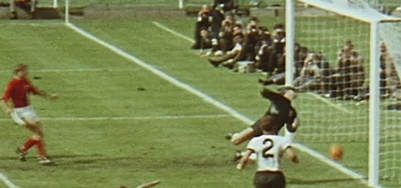
This blog post is not about whether or not we can say Leicester City's goal was purely as a result of the new system. This post is about the system and the implications for competitive balance (CB). In that respect two other points are important to note. First, the goal came in an FA Cup game - a knockout tournament. Second, it was awarded to the team that plays in the highest tier of English football (and against the team that plays its league football in a lower tier of English football). The greater accuracy of video favoured the stronger team.
These type of issues are addressed in work by Loek Groot. Of particular interest is a 2009 paper published in the Journal of Institutional and Theoretical Economics. Groot uses a Donald Duck story (Football Fever) to draw attention to the way spectators like some degree of uncertainty. He then goes on to model what might be expected. He says "the adoption of TV monitoring and other features to help the referee and linesmen means that the right decisions will be bought at the price of a lower CB: higher accuracy reduces CB".
The key idea in Groot (2009) is the natural level of competitive balance in a sport. He argues that sports with higher frequency of scoring have lower natural levels of competitive balance. He claims that this justifies greater levels of intervention by governing bodies to aid competitive balance, e.g. the sequence of draft picks. He contrasts this with the use of video referees. He says there is greater use of video refereeing in higher scoring sports. This means that the lower natural level of competitive balance is reduced further.
Groot points out that even within a sport the type of tournament can be important for competitive balance. Knockout tournaments have lower levels of natural competitive balance compared to round-robin tournaments. The repeated interaction of round-robin tournaments means that errors of impartial referees should cancel out. However, a refereeing error in a knockout tournament is different. Using data from the latter knockout stages of major international tournaments, he says that only 10% of games are decided by more than one goal. An error here can have huge implications. In these situations the accuracy benefits of TV monitoring might outweigh any reduction in competitive balance.
Today, video assisted refereeing seems to be getting the benefit of the doubt. Leicester City beat Fleetwood Town by two goals. Would the system have got as much praise if it was a one goal difference with penalty kick looming?
 RSS Feed
RSS Feed